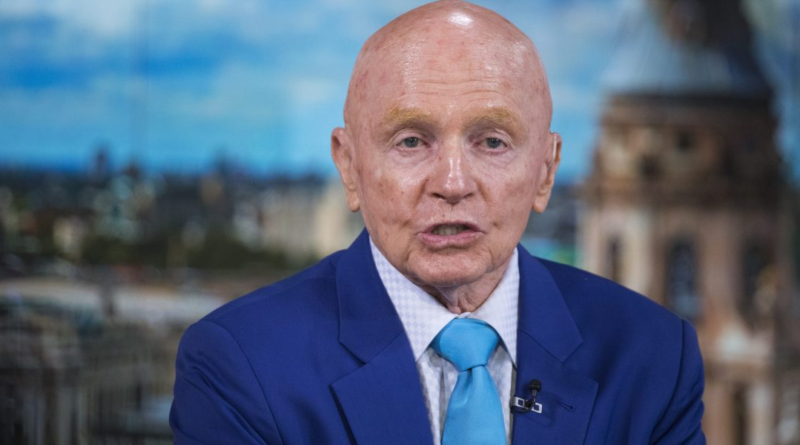Investor Mark Mobius complains his money is stuck in China
Veteran emerging markets investor Mark Mobius said that investors should “be very, very careful investing in China,” after struggling to get his money out of the country.
Mobius, founder of Mobius Capital Partners, has been a longtime booster of Chinese equities, yet revealed why he changed his mind in an interview with Fox Business on Thursday.
The investor revealed that he had funds trapped in an account with HSBC in Shanghai. “I can’t get my money out. The government is restricting the flow of money out of the country,” he said.
Mobius continued that the Chinese government was “putting all kinds of barriers” in his way. “They don’t say, ‘No, you can’t get your money out,’ but they say, ‘Give us all the records from 20 years of how you’ve made this money,’ and so forth. It’s crazy.”
In China, individuals and businesses trying to move money out of the country have to comply with policies and restrictions set by regulators like the State Administration of Foreign Exchange (SAFE), which governs China’s foreign exchange market.
Those restrictions differ from more open economies where money can be freely moved in and out, such as the U.S. or Hong Kong, the semi-autonomous Chinese city.
On Fox Business, Mobius said his team was investing in China through Hong Kong, which Mobius characterized as a “little more open” than China. The city allows overseas investors to invest in both Chinese equities and bonds through local financial institutions.
China’s economy
Foreign companies and investors soured on the Chinese economy throughout 2022, following an official crackdown on major private sector companies and economic damage caused by strict COVID-zero policies, leading to monthly capital outflows of billions of dollars as investors dumped bonds and equities.
Yet China’s rapid reopening is encouraging analysts to give more bullish predictions for both China’s economy and its equity markets. In late February, Goldman Sachs estimated that China stocks could rise by as much as 24% by the end of the year, as sentiments shift “from reopening to recovery.”
Such renewed optimism is far from universal, however.
On Sunday, China said it would target GDP growth of 5% for 2023, lower than what economists expected.
And earlier this month, the American Chamber of Commerce in China reported that only 45% of over 300 firms surveyed between October and November 2022 considered China a “top-three” investment destination, down from 60% a year earlier.
Mobius on Thursday warned that Chinese officials were trying to exert greater oversight of China’s private companies, including through “golden shares,” or nominal shares bought by government-affiliated entities to gain board representation and veto rights.
“I don’t think it’s a very good picture to see the government becoming more and more control-oriented in the economy,” Mobius said.
Mobius suggested that he was now looking at other possible investment destinations, in particular India. “You’ve got a billion people, they can do the same thing that the Chinese do. They can do the same kind of manufacturing and so forth,” Mobius said.
Manufacturers are considering moving production outside of China, in part due to concerns about worsening tensions between Beijing and Washington. Before the weekend, Apple supplier Foxconn reportedly agreed to invest $700 million in a new Indian plant in Karnataka.
Learn how to navigate and strengthen trust in your business with The Trust Factor, a weekly newsletter examining what leaders need to succeed. Sign up here.



